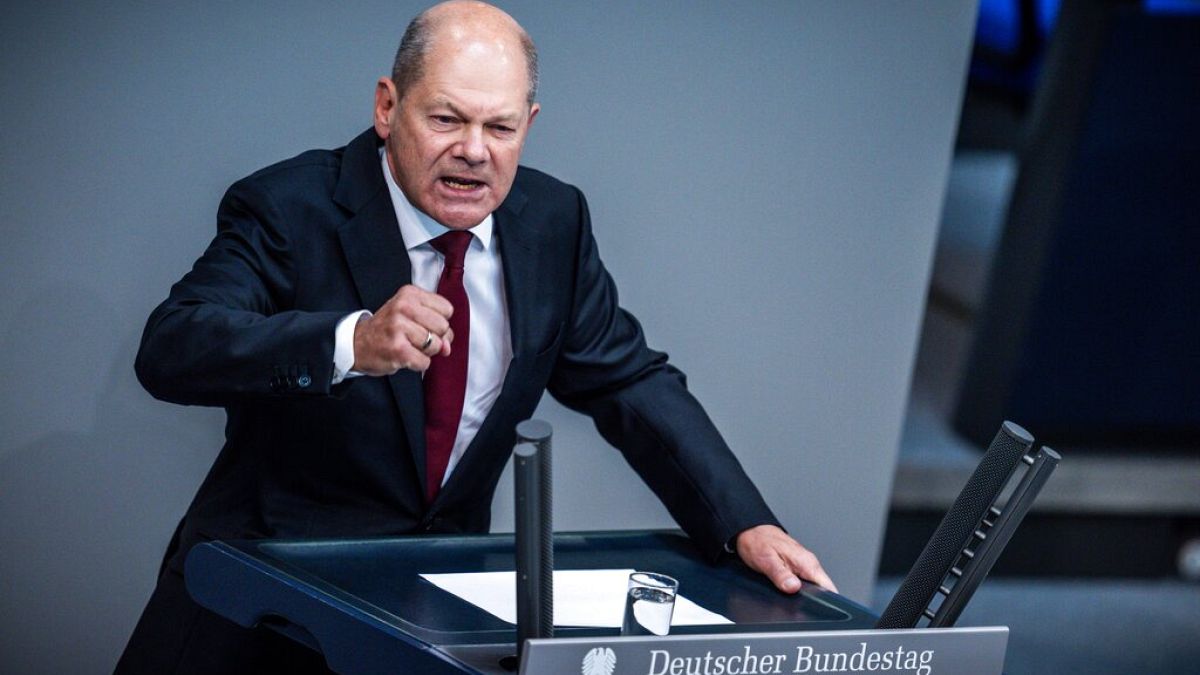The main opposition leader accused Scholz and his coalition of failing the German people amidst an energy crunch and soaring inflation, sparking an angry reaction.
German Chancellor Olaf Scholz lost his usual coolness over a fierce exchange about energy costs in Germany's lower house of parliament on Wednesday.
The budget debate got heated as the leader of the main opposition party, the Christian Democrats (CDU), accused Scholz and his coalition partners of failing the German people amidst an energy crunch and soaring inflation.
The usually composed German leader told house members: "Don't underestimate our country, don't underestimate the citizens of this country."
Scholz countered that it was the CDU's Angela Merkel government who left Germany in a precarious position, accusing her administration of actively blocking the development of renewables. CDU-led ministries found it no problem at all that the storage facilities for gas in this country were empty last year, he added.
"We made sure that this changed with laws and regulations that we put in place. They didn't even manage in the opposition to blame their own failure as a problem on the new government, we had already solved it, before they even realised that there was one. That's the truth we need to talk about."
On Sunday, Scholz presented Germany's third relief package worth €65 billion, which is intended to reach as many Germans as possible.
Among other things, an electricity price brake is planned, which will provide consumers with a fixed amount of electricity at a price capped by the state.
The whole thing is to be financed, among other things, by skimming off "windfall profits" from energy companies that produce cheap electricity.
In neighbouring Austria, the conservative-green government passed regulations on electricity price brakes, which will come into force in December, and should relieve households until June 2024.
Under the plan, the electricity price will be capped at ten cents per kWh, and could bring households a relief of about €500 a year.
Watch the report in the video player above.
